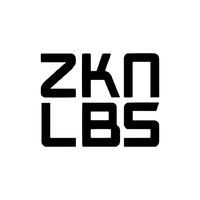Blockchain is an innovative technology that is revolutionising many industries around the world. To fully understand its applications, it is essential to start with a solid understanding of its foundations.
The Potentials of the Blockchain
The blockchain is a distributed digital ledger, a kind of public ledger that records transactions permanently and securely. Unlike traditional systems based on a central authority, such as a bank or government, it is decentralised and allows a wide network of participants to share and validate information. This technology was originally developed to support the pioneering cryptocurrency, Bitcoin, but its applications have extended far beyond the cryptocurrency world. At SpazioCrypto, we are strong supporters of the blockchain as a tool to make some sectors more efficient, transparent, and secure. We will explore in depth many of the applications of the blockchain and how it can revolutionise entire industries.
How a Blockchain Works
The blockchain is composed of cryptographically linked blocks of data. Each block contains a group of recent transactions and a reference to the previous block, thus creating a continuous blockchain. This structure is what gives the technology its name: 'block' and 'chain'. One of its most distinctive features is its immutability. Once information is recorded on a block, it is extremely difficult to change it. Since each block refers to the previous block and contains information about its validity, any attempt to alter the data in one block would result in all subsequent blocks being altered, which would require the consent of the majority of the network, making fraud virtually impossible.
The Cryptographic Keys: Fundamental for Security
Security is a crucial element of the blockchain. Cryptographic keys are used to guarantee the authenticity and privacy of transactions. Each network participant has a pair of keys: a public key, known to all, and a private key, known only to the owner. The private key is essential for digitally signing transactions, confirming their authenticity. This encryption system ensures that only the owner of the private key can authorise transactions. It is this robust cryptography, decentralisation, and blockchain structure that make blockchain highly secure.
Blockchain and Transactions
Blockchain began its career as the core technology for Bitcoin, the first cryptocurrency. However, its impact extended far beyond the world of cryptocurrencies, with the creation of smart contracts. Today, blockchain and smart contracts are used for a wide range of financial transactions, ranging from managing digital assets to making international payments. One of the most significant aspects of blockchain-based financial transactions is their speed and efficiency. Traditional transactions, especially international ones, can take days or even weeks to process. With blockchain, transactions can be confirmed in a matter of minutes, greatly reducing waiting time and associated costs.
Traceability and Security of Transactions
This technology also offers greater traceability and security of transactions. Each transaction is permanently recorded on a blockchain and made accessible to all network participants. This level of transparency reduces the risk of fraud and makes it easier to verify transactions. Security is once again a focal point. Transactions are encrypted and protected by the participants' private keys. This means that only those who have authorisation can carry out transactions, greatly reducing the risk of unauthorised transactions.
Blockchain for Transactions
Using it in financial transactions offers numerous advantages:
Cost Reduction: The removal of financial intermediaries reduces transaction costs.
Speed: Transactions take place quickly, especially internationally.
Transparency: All transactions are recorded and publicly accessible.
Security: Cryptography protects transactions from unauthorised access.
In conclusion, the blockchain, through cryptocurrencies and smart contracts, is revolutionising the financial transaction industry, offering greater efficiency, security and transparency. We will explore how this technology is affecting other key areas, such as digital identity and privacy management.
Blockchain and Digital Identity
Digital identity has become an essential element in our daily lives. We use our digital identities to access online services, perform financial transactions and much more. However, digital identity management is often subject to risks of fraud and privacy breaches. Blockchain offers a promising solution to this problem. Its ability to provide a permanent and secure record of digital identities makes it an ideal option for identity management. Personal information can be stored in an encrypted manner, allowing individuals to have complete control over their identities and decide who can access them.
Security and Authentication via Blockchain
The blockchain greatly enhances online security and authentication. Using public and private key cryptography, people can authenticate their identities securely without having to share sensitive information such as passwords or social security numbers. This reduces the risk of identity theft and online fraud. It also allows users to provide proof of identity without having to disclose specific details. For example, it is possible to prove one's age without revealing one's exact date of birth, which is useful in many online transactions.
Personal Data Protection
It could also promote the management and protection of personal data. Users would have control over their data and can only grant access to authorised parties. This contrasts with traditional practices in which large companies collect and use personal data without users' explicit consent. In conclusion, this technology offers a secure, transparent and decentralised way to manage digital identities and protect privacy online.
Supply Chain and Fight Against Counterfeiting
We have explored the fundamental role of blockchain in the area of digital identity and privacy protection. Now, we will focus on how this technology can have a significant impact on supply chain management and the fight against counterfeiting.
The Supply Chain Revolution
The supply chain is a vital component of the global economy, but is often subject to problems of inefficiency, lack of transparency and product counterfeiting. Smart contracts offer an innovative solution to these problems. Thanks to the immutable recording of transactions, complete traceability of products along the entire supply chain is possible. Every step, from production to distribution, is securely recorded on a public or private blockchain. This makes it possible to quickly locate the origin of a product and identify any problems or counterfeits.
Product Traceability and Reduction-of-Counterfeits
Product traceability is one of the main applications of blockchain in supply chains. Imagine buying a food product and being able to scan a QR code to see the entire path that product has followed, from the producer to your supermarket. This level of transparency can help ensure the quality and safety of products. Furthermore, blockchain is a powerful weapon against counterfeiting. Since the data is immutable, it is difficult for counterfeiters to falsify the registration of authentic products. This protects consumers from dangerous or low-quality products and helps companies preserve their reputation.
Quality Management
This technology not only helps ensure product safety, but can also improve quality management. Detailed information on production processes and supply chain management can be easily accessible, allowing for tighter control over product quality. Blockchain is revolutionising supply chain management, providing greater traceability, reducing counterfeiting and improving product quality management.
Other Key Applications-of-Blockchain
We have explored how blockchain is revolutionising supply chain management and the fight against counterfeiting. In this chapter, we will continue to examine blockchain applications in a number of key sectors, including the Internet of Things (IoT), energy, digital voting, healthcare, education and taxation.
IoT: A Revolutionary Partnership
The Internet of Things (IoT) represents the connection of physical devices to the Internet. The blockchain offers a solution to guarantee the security and integrity of the data generated by these devices. With a blockchain, it is possible to create a permanent record of sensor readings and transactions between IoT devices. This is especially important in sectors such as logistics, where real-time traceability is crucial.
Energy and Renewable Resources
In the energy sector, blockchain is used to improve the management of electricity grids, energy distribution and even energy trading between peers. The blockchain enables the creation of decentralised energy networks, where users can share energy securely and transparently.
Secure Digital Voting: A Realistic Possibility
The blockchain offers revolutionary potential for digital voting. Due to its immutability and security, it can ensure the integrity of digital elections, preventing the manipulation of results and enabling citizens to vote securely and anonymously.
Healthcare: Medical Data Management
In the healthcare sector, this technology can improve medical data management. Patients can be in control of their data and grant access only to authorised providers, ensuring privacy and security of health information.
Education: Degree Verification
In education, blockchain can be used to verify degrees quickly and reliably. Students can have a permanent record of their qualifications, simplifying the job search process and the verification of qualifications.
Taxation: A Futuristic Vision
This technology could even revolutionise the tax system, enabling more efficient recording and verification of financial transactions and tax returns.
In conclusion, blockchain applications have great revolutionary potential in a wide range of sectors, from IoT to education and taxation. This technology continues to evolve and find new uses around the world. Its ability to provide transparency, security and traceability is changing the way we address many contemporary challenges, laying the foundation for the emergence of the Web3.
The Future of Blockchain Applications
To this point, we have looked at a range of blockchain applications in various sectors, from financial transactions and digital identity to supply chain management and more. However, it is important to emphasise that this is only the beginning of the evolution of potential opportunities.
Challenges and Opportunities
Despite the many advantages, there are challenges to be faced. One of the main ones is scalability, as existing blockchains may have capacity limits. In addition, there are regulatory and privacy issues to consider as blockchain increasingly spreads into traditional industries. However, these challenges are also opportunities. Many experts are working to overcome scalability issues and to develop regulations that allow for sustainable growth of the technology. New ways of addressing global problems such as food security, resource management and environmental protection could be offered.
The Potential Social and Economic Implications
The application of smart contracts has the potential to radically change society and the economy. They can make markets more efficient, democratise access to financial services and improve transparency in various sectors. However, it is important to consider the social and economic implications of these changes, including employment issues, access to innovation and the distribution of wealth.
In conclusion, blockchain is an extraordinary technology that continues to show its potential. As we explore new applications and overcome the challenges that arise, it is important to keep ourselves informed and open to the possibilities that this technology can offer. On SpazioCrypto you can explore our educational guide, in which you can find all the information you need to best navigate the world of Web3 and cryptocurrencies, optimistically, but critically and without bias. The future of blockchain applications is promising, and their growth and adoption will continue to shape our world in the coming years.








